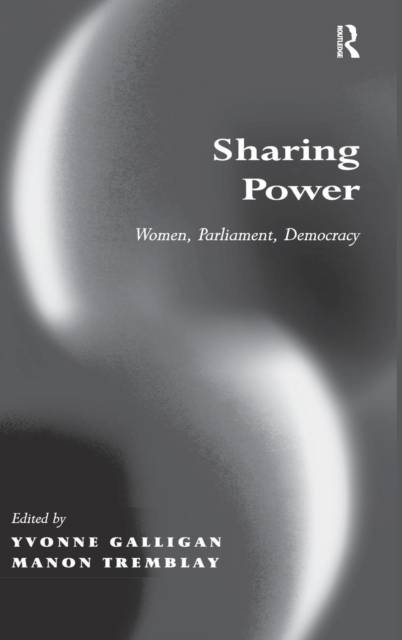
Door een staking bij bpost kan je online bestelling op dit moment iets langer onderweg zijn dan voorzien. Dringend iets nodig? Onze winkels ontvangen jou met open armen!
- Afhalen na 1 uur in een winkel met voorraad
- Gratis thuislevering in België vanaf € 30
- Ruim aanbod met 7 miljoen producten
Door een staking bij bpost kan je online bestelling op dit moment iets langer onderweg zijn dan voorzien. Dringend iets nodig? Onze winkels ontvangen jou met open armen!
- Afhalen na 1 uur in een winkel met voorraad
- Gratis thuislevering in België vanaf € 30
- Ruim aanbod met 7 miljoen producten
Zoeken
€ 175,95
+ 351 punten
Uitvoering
Omschrijving
The representation of women in parliament is a subject of extensive research and a focus for political action in the last decade. The wide variation in women's parliamentary presence contradicts the expectation that established or consolidated democracies are more supportive of the presence of women in political life than emerging democracies. This volume explains this variation through a series of closely investigated case studies from the post-Communist transition democracies of Eastern Europe and emerging democracies in Asia and the Middle East to the long-established liberal democratic states. The volume examines the history of women's legislative involvement, clearly addressing the issue of equal opportunities for women in political life on a cross-national basis. It also identifies innovative solutions to redress the power-sharing balance between women and men. Offering a unique comparative perspective, Sharing Power will appeal to students and scholars of politics, women's studies, history and legislative studies.
Specificaties
Betrokkenen
- Auteur(s):
- Uitgeverij:
Inhoud
- Aantal bladzijden:
- 284
- Taal:
- Engels
Eigenschappen
- Productcode (EAN):
- 9780754640899
- Verschijningsdatum:
- 5/07/2005
- Uitvoering:
- Hardcover
- Formaat:
- Genaaid
- Afmetingen:
- 156 mm x 234 mm
- Gewicht:
- 576 g

Alleen bij Standaard Boekhandel
+ 351 punten op je klantenkaart van Standaard Boekhandel
Beoordelingen
We publiceren alleen reviews die voldoen aan de voorwaarden voor reviews. Bekijk onze voorwaarden voor reviews.











